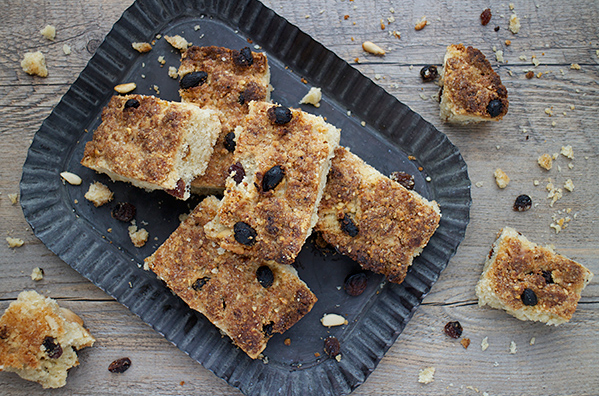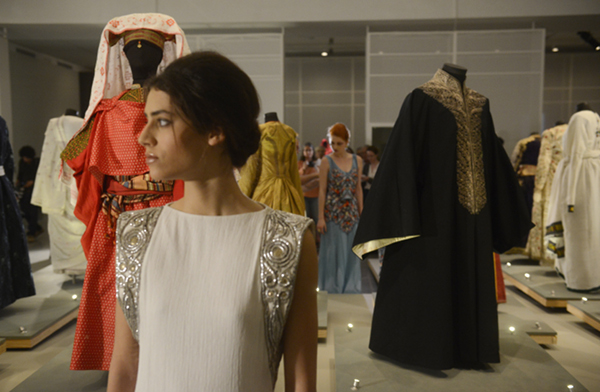
 |
| Our Challenge: Digital Madness |
 by Guido Vitale* by Guido Vitale*Jewish State of the Net, the journalism course our newspaper is organizing this spring in Turin, will cover issues raised by digital dementia and the misuses of social media (including astroturfing and sockpuppetting). This is a problem of major relevance for all of Italian society, which is increasingly beset by the maneuvering of political consensus by “sock puppeteers”. However, it also affects the Italian Jewish world, which often struggles to counter such spurious campaigns with effective, credible and sophisticated reporting and information. In their two millennia of history, Italian Jews have shown that at the cost of great sacrifice it is possible to overcome the worst difficulties and to secure our future. Openly discussing the destructive tendencies of those who use the internet to spread poison and madness, is the major challenge of our time. *Guido Vitale is the editor-in-chief of Pagine Ebraiche. |
 |
| Italian Word of the Week: LA RETE |
| by Daniela
Gross In Italy people often refer to the internet as “la rete” (literally, the network) and for the Italian Jewry the web has been really important. If you are in Rome or Milan, where the 70 per cent of Italian Jews are in fact concentrated, maybe the problem is not as big. But if you live in a small Community (and there are some that count only few dozen members), the opportunity to share ideas and projects is rare. “La rete” is giving a fundamental contribution to renew the link among the Communities and to put in touch the Italian Jewish world and the society: not by chance also most of the information produced by Union of Italian Jewish Communities is released via internet (like this Pagine Ebraiche International Edition). But the web is also a way for spreading hatred e prejudices. In the last five years, the Observatory on Contemporary Anti-Semitism and Prejudice in Italy of the Foundation Jewish Contemporary Documentation Center notices, the Italian cyberspace registered a progressive increase of anti-Semitism and became the principal way to propagate racism, intolerance and stereotypes. The situation is getting so bad that even the law has had repeatedly to deal with it. The meeting J-net, organized next week by the editorial staff of the Pagine Ebraiche in Turin, is therefore really important to comprehend what’s happening because words can kill, even if they are born on line. |





This newsletter is published under difficult conditions. The editors of this newsletter are Italian journalists whose native language is Italian. They are willing to offer their energy and their skills to give international readers the opportunity of learning more about the Italian Jewish world, its values, its culture and its traditions.
In spite of all our efforts to avoid this, readers may find the occasional grammatical mistake. We count on your understanding and on your help and advice to correct these mistakes and improve our publication.
Pagine Ebraiche International Edition is published by the Union of Italian Jewish Communities (UCEI). UCEI publications encourage the understanding of the Jewish world and the debates within it. The articles and opinions published by Pagine Ebraiche International Edition, unless expressly stated otherwise, cannot be interpreted as the official position of UCEI, but only as the self-expression of the people who sign them, offering their comments to UCEI publications. Readers who are interested in making their own contribution should email us at desk@ucei.it
You received this newsletter because you authorized UCEI to contact you. If you would like to remove your email address from our list, or if you would like to subscribe using a new email address, please send a blank email to desk@ucei.it stating "unsubscribe" or "subscribe" in the subject field.
© UCEI - All rights reserved - The articles may only be reproduced after obtaining the written permission of the editor-in-chief. Pagine Ebraiche - Reg Rome Court 199/2009 – Editor in Chief: Guido Vitale - Managing Editor: Daniela Gross.
Special thanks to: Susanna Barki, Monica Bizzio, Benedetta Guetta, Francesca Matalon, Giovanni Montenero, Giandomenico Pozzi, Daniel Reichel, Jacques Roumani, Adam Smulevich, Simone Somekh, Rossella Tercatin, Ada Treves.
Questo notiziario è realizzato in condizioni di particolare difficoltà. I redattori di questo notiziario sono giornalisti italiani di madrelingua italiana. Mettono a disposizione le loro energie e le loro competenze per raccontare in lingua inglese l'ebraismo italiano, i suoi valori, la sua cultura e i suoi valori. Nonostante il nostro impegno il lettore potrebbe trovare errori e imperfezioni nell'utilizzo del linguaggio che faremo del nostro meglio per evitare. Contiamo sulla vostra comprensione e soprattutto sul vostro aiuto e sul vostro consiglio per correggere gli errori e migliorare.
Pagine Ebraiche International Edition è una pubblicazione edita dall'Unione delle Comunità Ebraiche Italiane. L'UCEI sviluppa mezzi di comunicazione che incoraggiano la conoscenza e il confronto delle realtà ebraiche. Gli articoli e i commenti pubblicati, a meno che non sia espressamente indicato il contrario, non possono essere intesi come una presa di posizione ufficiale, ma solo come la autonoma espressione delle persone che li firmano e che si sono rese gratuitamente disponibili. Gli utenti che fossero interessati a offrire un proprio contributo possono rivolgersi all'indirizzo desk@ucei.it
Avete ricevuto questo messaggio perché avete trasmesso a Ucei l'autorizzazione a comunicare con voi. Se non desiderate ricevere ulteriori comunicazioni o se volete comunicare un nuovo indirizzo email, scrivete a: desk@ucei.it indicando nell'oggetto del messaggio "cancella" o "modifica".
© UCEI - Tutti i diritti riservati - I testi possono essere riprodotti solo dopo aver ottenuto l'autorizzazione scritta della Direzione. Pagine Ebraiche International Edition - notiziario dell'ebraismo italiano - Reg. Tribunale di Roma 199/2009 - direttore responsabile: Guido Vitale - Coordinamento: Daniela Gross.
Realizzato con il contributo di: Susanna Barki, Monica Bizzio, Benedetta Guetta, Francesca Matalon, Giovanni Montenero, Giandomenico Pozzi, Daniel Reichel, Jacques Roumani, Adam Smulevich, Simone Somekh, Rossella Tercatin, Ada Treves.







